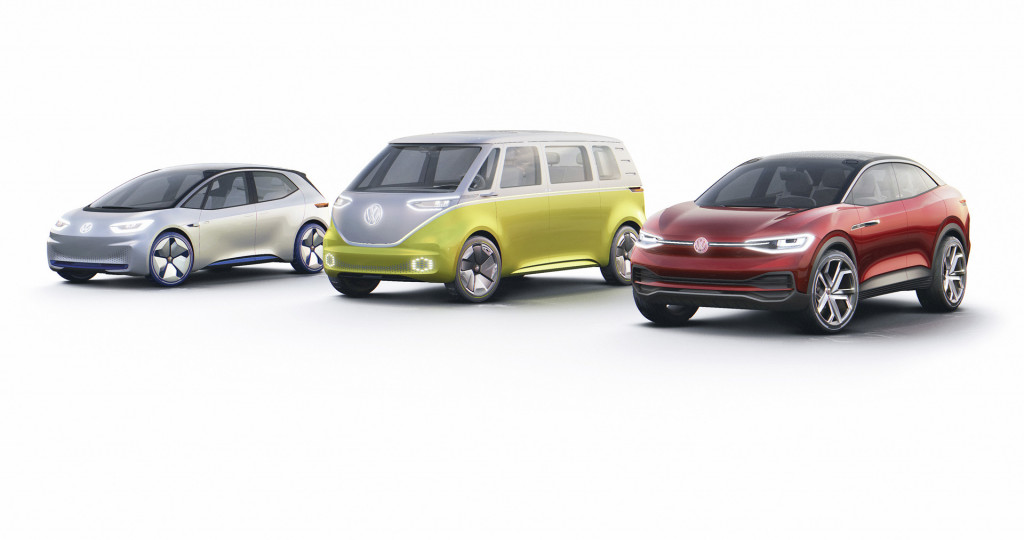The Volkswagen Group on Monday gave an update on progress of its modular platform for non-premium cars, known as MEB, an acronym for the German translation of “Modular Electric Toolkit.”
The automaker said 27 models spread across four brands (likely Volkswagen, Skoda, Seat and Audi) will be available by the end of 2022, ranging from compact cars up to a modern successor to the iconic Microbus.
This will be in addition to models based on VW Group's premium electric car platforms like the C-BEV debuting in the Audi e-tron, the J1 debuting in the Porsche Taycan, and a new PPE platform currently being developed by Audi and Porsche and due to spawn its first model in 2021.

Volkswagen ID electric car concept, 2016 Paris auto show
With these additional platforms, plus a potential SPE platform for electric sports cars, VW Group is targeting close to 80 electric cars across all of its brands by 2025. The cost of developing them is proving to be more expensive than originally envisaged, though. The automaker has currently set aside $7 billion for electric car development.
"The burden for our company, such as the cost of bringing to market electric cars, will be higher than expected,” CEO Herbert Diess said. “This is particularly so since some of our competitors have been making more progress."
The MEB platform is the most important for the automaker, as the cars based on it will be more affordable and sell in higher volumes than models based on the group's other electric car platforms. VW Group sees the platform as being instrumental in transforming the electric car from a niche product into a true alternative to cars with conventional powertrains. VW Group likens the introduction as monumental as the transition from the Volkswagen Beetle to the Golf.

Left to right: Volkswagen ID, ID Buzz and ID Crozz concepts
So what can we expect of cars based on the MEB platform. “The cars hold the road really well thanks to the flat battery in the floorpan and the space inside is much more generous—we are making substantial headway with the sense of spaciousness,” Christian Senger, VW Group's head of electric cars, said. He also said they will incorporate fast-charging and promised an 80-percent charge in about 30 minutes. The automaker is keeping quiet on the all-important range figure but has hinted at the minimum being somewhere around 250 miles.
The first car based on the MEB platform will be a production version of 2016's VW ID hatchback concept. The hatch, which will be slightly larger than a Golf, is already being tested as a prototype and due to enter production at a plant in Zwickau, Germany at the end of 2019.
Other cars that we know are coming include production versions of VW's ID Crozz crossover and ID Buzz van concepts unveiled in 2017. The Buzz is a preview of the aforementioned Microbus successor. Both vehicles are expected after 2020.
